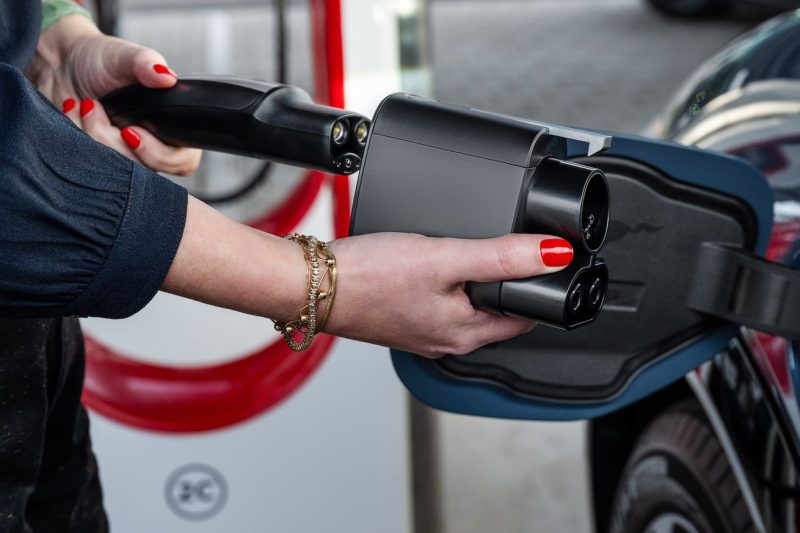In a recent development impacting electric vehicle (EV) users, Ford has reportedly advised certain customers to discontinue using its Tesla Supercharger Adapter due to safety concerns. The adapter, which allows Ford electric vehicle owners to charge their cars at Tesla Supercharger stations, has raised compatibility issues and prompted Ford to take action. This move underscores the complexities and challenges within the EV charging infrastructure and highlights the importance of ensuring safety and functionality for all users.
The Tesla Supercharger network is widely recognized for its fast charging capabilities and expansive coverage, making it a desirable option for many EV drivers. With Ford electric vehicles gaining popularity, the need for efficient charging solutions has become increasingly crucial. To address this demand, Ford introduced the Tesla Supercharger Adapter as a workaround for its customers to access Tesla’s charging network.
However, problems emerged as some Ford electric vehicle owners using the adapter encountered issues such as overheating and difficulty establishing a stable connection at Tesla Supercharger stations. These complications raised concerns about the safety and reliability of the adapter, prompting Ford to issue guidance advising specific customers to cease using the device.
The decision by Ford highlights the intricate technical challenges involved in integrating different EV systems and infrastructure. While interoperability between various electric vehicle models and charging networks is essential for enhancing the overall user experience and promoting widespread adoption of EVs, ensuring compatibility and safety remain paramount.
As the EV market continues to expand, automakers, charging networks, and regulatory bodies must collaborate to establish common standards and protocols that facilitate seamless integration and interoperability. By addressing issues such as the one faced by Ford with its Tesla Supercharger Adapter, stakeholders can work towards creating a more user-friendly and reliable charging ecosystem that benefits all electric vehicle users.
In conclusion, the decision by Ford to advise certain customers to discontinue using its Tesla Supercharger Adapter underscores the importance of prioritizing safety and functionality in the rapidly evolving electric vehicle market. As the industry continues to innovate and grow, addressing compatibility challenges and ensuring seamless integration across different EV platforms will be essential for driving the widespread adoption of electric vehicles and creating a sustainable transportation future.




























